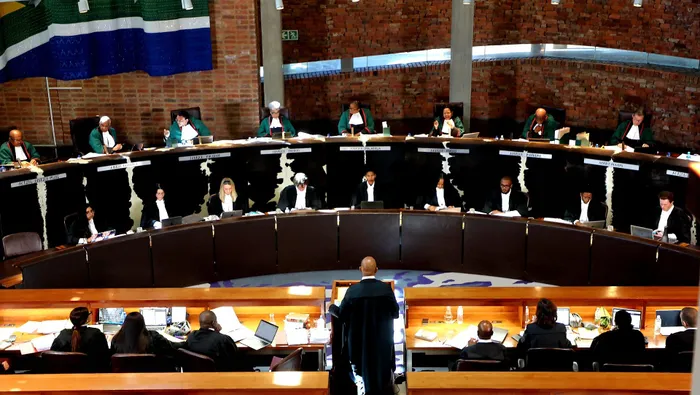‘RAND-FIXING’: BANKS HAVE THEIR DAY IN COURT

The Constitutional Court in Johannesburg will for four days, starting on Tuesday, hear arguments relating to allegations of Rand-fixing, following an appeal by the Competition Commission.
Image: Timothy Bernard / Independent Newspapers
THE Competition Commission has hauled some of the country’s top banks to the apex court over allegations that they conspired with each other to manipulate the foreign exchange rate in respect of the US Dollar and the Rand.
The commission turned to the Constitutional Court for leave to appeal the Competition Appeal Court (CAC) judgment handed down in January last year in which it upheld the appeal by the majority of the respondent banks accused of price-fixing.
The Constitutional Court is due to hear legal arguments over four days.
In June 2020, the Commission had referred the case regarding the alleged rand fixing against 28 local and foreign banks to the Competition Tribunal.
The banks were ordered by the Tribunal in March 2023 to file their answering affidavits in response to the Commission’s complaint referral, but objected to the Tribunal order and appealed it to the CAC.
The CAC, in its judgment last year, released 17 banks from the complaint referral before they answered the allegations against them and restricted the Commission’s case to only the four respondent banks.
In its current application for leave to appeal, the Commission is appealing the CAC order to the Constitutional Court against 13 banks. These banks include Standard Bank of South Africa, Nedbank Limited and FirstRand Bank Limited, while the bulk are foreign banks.
The Commission said this appeal will provide the Constitutional Court with an opportunity to pronounce on whether the South African competition authorities have jurisdiction to investigate and prosecute firms that are based outside of the Republic whose anti-competitive conduct affects the South African economy.
In April 2015, the Commission initiated a complaint against various financial entities centred on allegations of price-fixing and market division in the trading of the USD/ZAR currency pair. The anti-competitive practices are alleged to have taken place between September 2007 to at least September 2013.
According to the Commission, the general terms of the conspiracy included that the banks’ traders would participate, actively and passively, in frequent and regular communication and contact with one or more traders employed by or representing competing banks when engaging in trading the USD/ZAR currency pair.
The Commission subsequently referred the complaint to the Tribunal in February 2017. The banks took exception to the original referral. Those objections were adjudicated by the Tribunal in 2019 and considered again on appeal before the CAC in 2020, which ordered that the Commission file a new referral affidavit to substitute for and replace all the complaint referral affidavits.
In accordance with the 2020 CAC order, the Commission filed its complaint referral anew in June 2020.
Again, the respondent banks filed exceptions together with applications for dismissal of this referral. It was against this referral that the respondent banks approached the CAC.
In now turning to the apex court, the Commission argues that the CAC erred in several aspects of its judgment.
Several banks, including Standard Bank, are meanwhile opposing the application, saying that this is not a constitutional issue, nor is it in the interest of justice to grant leave to appeal.
While denying any hand in the Rand price-fixing allegations, they maintain that these allegations against them have caused them tremendous reputational damage.
Cape Times
Related Topics: